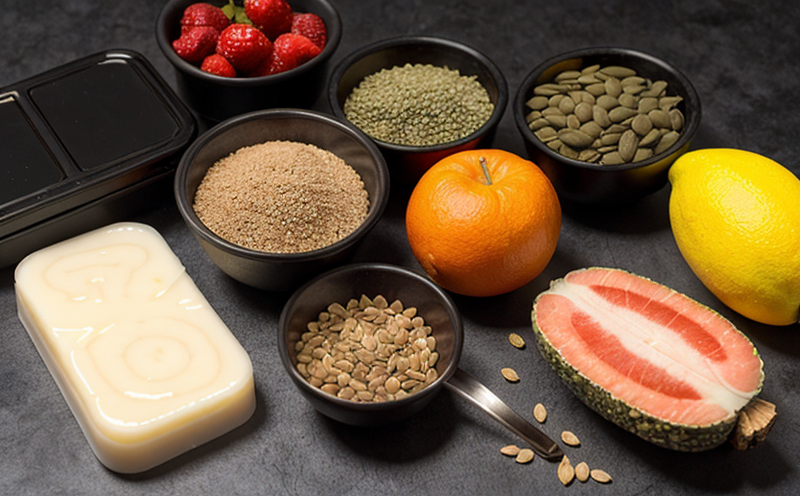EN 18702 Determination of Carbohydrates in Dairy-Based Beverages
The European Standard EN 18702 specifies a detailed method for the determination of carbohydrates in dairy-based beverages. This standard is particularly important for quality assurance, compliance with regulations, and ensuring product integrity in the food & feed sector.
Carbohydrates are a critical component of dairy products as they influence taste, texture, and overall nutritional value. The accurate quantification of these components ensures that the final product meets consumer expectations and regulatory requirements. This standard provides a robust framework for laboratories to conduct precise analyses, ensuring reliability and consistency.
The EN 18702 method involves several steps including sample preparation, extraction, and analysis using spectroscopic techniques such as near-infrared (NIR) or gas chromatography-mass spectrometry (GC-MS). Each step is designed to minimize interference while enhancing the accuracy of the final results.
The use of this standard in dairy production allows for consistent quality control across batches, ensuring that the carbohydrate content is within acceptable limits as defined by food safety standards. This is especially crucial in industries where deviations from specified levels could lead to product recalls or legal issues.
By adhering to EN 18702, laboratories can provide reliable data which helps manufacturers make informed decisions regarding formulation and labeling of their products. This ensures not only regulatory compliance but also enhances consumer trust by providing transparent information about the nutritional content of dairy-based beverages.
| Sample Preparation | Analytical Techniques | Data Analysis |
|---|---|---|
| Thoroughly homogenize the sample and filter it to remove any particulates. | Near-Infrared Spectroscopy (NIR) or Gas Chromatography-Mass Spectrometry (GC-MS). | Analyze spectra or chromatograms using appropriate software to determine carbohydrate content. |
Benefits
- Ensures compliance with international standards and regulations.
- Provides accurate and reliable data for quality control.
- Supports the development of consistent product formulations.
- Facilitates transparent labeling, enhancing consumer trust.
Customer Impact and Satisfaction
By leveraging EN 18702 for carbohydrate determination, customers can expect enhanced product quality and safety. This ensures that the end products meet both internal standards and external regulatory requirements.
The accuracy provided by this method allows manufacturers to adjust formulations precisely, leading to better-tasting and more consistent products. Consumers benefit from improved transparency in labeling, which fosters trust and satisfaction with brands they purchase from regularly.
Use Cases and Application Examples
- Dairy product manufacturers for quality control.
- R&D teams to optimize formulations.
- Regulatory bodies ensuring compliance with international standards.
Table 1: Use Cases and Application Examples
| Use Case | Description |
|---|---|
| Dairy Quality Assurance | Ensure that carbohydrate content is within acceptable limits as defined by food safety standards. |
| R&D Formulation Optimization | Precise quantification of carbohydrates to adjust formulations for taste and texture. |
| Regulatory Compliance | Maintain compliance with international standards like EN 18702. |





